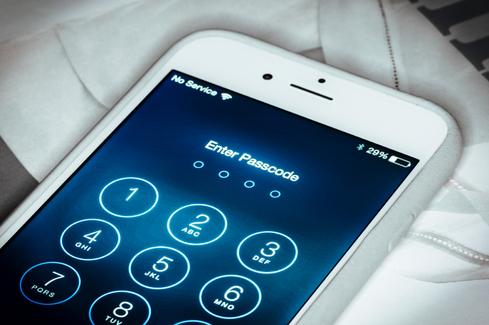Obama Won't Force Encryption Backdoors In Devices
The Obama administration will not pursue legislation that would compel companies to decrypt customer data, but will continue to try to persuade them to give them access when needed.


11 Clever iPhone 6 Hacks
11 Clever iPhone 6 Hacks (Click image for larger view and slideshow.)
Encryption on your iPhone and other digital devices is safe -- for now. The Obama administration has announced that it will not call for legislation to force backdoors into encryption methods, but is not giving up on getting the data in another way, according to published reports.
"The administration has decided not to seek a legislative remedy now, but it makes sense to continue the conversations with industry," FBI Director James B. Comey said at a Senate hearing of the Homeland Security and Governmental Affairs Committee Oct. 8.
So, the status quo holds. For now.
It is an uneasy status quo, to be sure.
The problem for law enforcement is that the kind of access that they had in the past to the communications of criminals is falling victim to technology. Putting a wiretap on a line is still possible with a warrant, but may yield no useful information if the communication is encrypted. Even if a warrant is presented to a device's manufacturer (as recently happened to Apple), the digital keys to the encryption used may not be held by the manufacturer.
However, advocates for privacy do not consider this a full victory.
The Electronic Frontier Foundation, in a statement in response to the news, said, "... it's not enough to acknowledge that a law forcing companies to build backdoors into their users' data is a bad idea. If Obama wants to leave a legacy promoting innovation and consumer privacy, he should create a clear policy position opposing secret, and sometimes informal, agreements between the government and tech companies to undermine security and privacy."
[Find out why the FBI chief said that encryption hinders investigations.]
This kind of debate has been going on since the mid-90s, when the government wanted to force widespread adoption of the Clipper chip. That was an "encryption" device with a built-in backdoor capability that would allow law enforcement to unwind encryption.
Silicon Valley tech firms have been fairly united in their opposition to encryption backdoors. However, rather than consumer advocacy motivating them in this matter, it may well be that they fear losing export markets for their products.
Don't forget that tech firms use encryption to protect the stored information that they collect about their customers for internal analysis. They are not keen on having that sort of information available to government regulators for their review. They have some of their own skin in this game, too.
About the Author
You May Also Like






